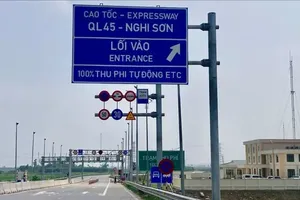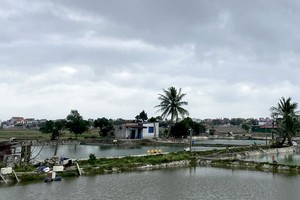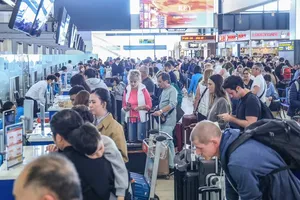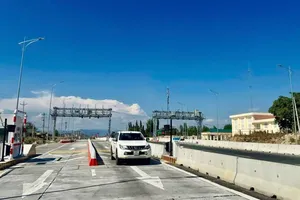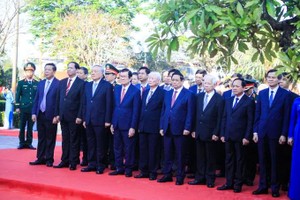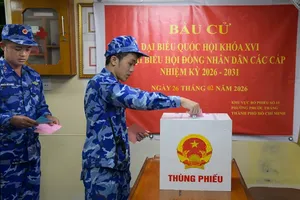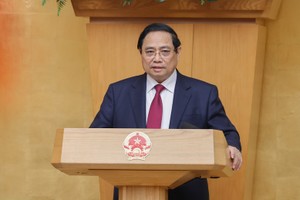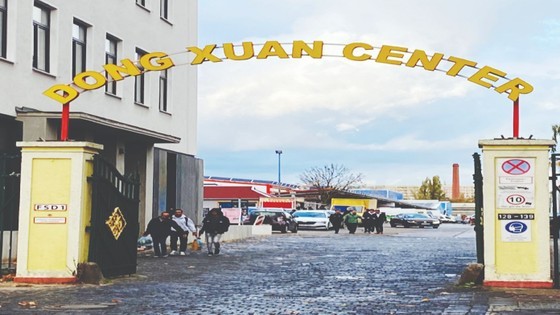 |
Dong Xuan Market in Berlin |
After Eastern European countries switched to a free market, the wholesale market model is very popular in Russia, nations – parts of republics of the former Soviet Union - and Germany with Vietnamese. Vietnamese businessmen in countries like Romania and Hungary rent kiosks and do business based on markets opened by Chinese people.
In the past, groups of wholesale markets, also known as delivery zones, only served customers purchasing products in bulk quantities at discounted rates for resale or distribution. Main business items are clothing, household appliances, interior and garden decorations, and food. Owners of retail stores in remote areas must drive to pick up goods quickly in the morning and soon return to their stores on the same day.
Previously, Ms. Pham Lan who used to have 3 clothing stores in Dragonul Rosu (Red Dragon Market) in Bucharest, Romania had to get up at 2:30 am, prepare breakfast for her family and bring it to the car to the market before 4 am, because wholesale markets are located in the outskirts of the city. At around 6-8 am, buying and selling was bustling in these wholesale markets ten years ago whereas retail business methods have changed a lot because e-commerce has been developing significantly.
The traditional trade model of wholesale markets is outdated, leading to a desolate and deserted scene. Kiosk owners had to change selling approaches to offer both services for retail customers even online sales so their customers no longer need to go to the market.
Many markets have become Vietnamese food markets such as Dong Xuan in Berlin, Ben Thanh in Leipzig, and Sapa in Prague.
Not only do Vietnamese people while shopping come to have lunch, but local residents also come to enjoy those Vietnamese dishes. Vietnamese people who want to cook at home also come here to buy ingredients imported from Vietnam and other Asian countries. Local people call them Asian markets.
Depending on the consumer culture of the indigenous people, Vietnamese entrepreneurs decide to change their business direction. In Germany, many restaurants and fast food restaurants selling Vietnamese dishes are seen in big cities in the entire federation. Vietnamese dishes are not only popular for their fresh ingredients, and delicious tastes at reasonable prices but also the warm and hospitable smiles of waiters.
In the Czech Republic; however, the grocery business is popular, not only in the capital Prague but in many tourist and resort cities such as Cesky Crumlov, and Karlovy Vary. Mr. Hieu Nguyen, a grocery store owner, said on the way to the King's Palace in Prague that with a capital of about VND1 billion (US$41,118) and a store area of about 70 square meters, the rent is about VND60 million per month, he and his wife earn a good income.
In France, Vietnamese-origin sellers place glass cabinets displaying ready-to-eat cooked foods on many street corners in all corners of France, not just in the capital Paris. A person can go to a Vietnamese store to buy braised beef, beef balls, braised pork, spring rolls, and hot pot ingredients to warm up at home and cook themselves.
No matter how times change, online shopping or e-commerce, the traditional market business style is still favored by Vietnamese expatriates as they look for it as a cultural feature, reminding them of their homeland. Thousands of Vietnamese people still stick to the market to do business and spread Vietnamese flavors throughout Europe.




